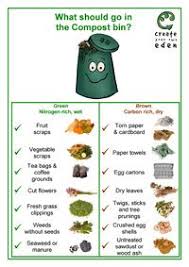5WAYS TO PROTECT YOUR ENVIRONMEN
Unfortunately, humans have not been very good stewards of the Earth over the years. To protect the environment and preserve the planet for our children and future generations, we all need to take proactive steps toward cleaner living habits.
Most of the damage to our environment stems from consumption: what we consume, how much we consume and how often.
Whether it’s gas, food, clothing, cars, furniture, water, toys, electronics, knick-knacks or other goods, we are all consumers. The key is not to stop consuming, but to start being mindful of our consumption habits and how each purchase or action affects the ecosystem.
The good news is that it’s often not too difficult, expensive, or inconvenient to become more environmentally friendly. It can even be a fun challenge to implement among your family or coworkers. And though small changes at the individual level may seem trivial, just think how much cleaner the planet would be if everyone adopted even a few of the following behavior modifications.
1.Don’t buy single-use plastics.
Pop a flask or reusable bottle in your bag next time you are out and about. Make this a habit and cut your weekly bottle buying altogether, stopping 52 bottles ending up in landfills and oceans.
More than 2,600 plastic bottles a year would be stopped from entering our environment altogether if just 50 people packed a flask instead of buying a bottle. Small changes can make a big difference
2.Reduce our ecological footprint:
Reducing our ecological footprint means placing less demand on nature .
- Recycle your rubbish and participate in or help organize recycling campaigns.
- Avoid littering and participate in or help organize litter clean-ups .
- Use less plastic by, for example, carrying a reusable water bottle, saying no to disposable straws and cutlery, avoiding plastic toys, and bringing your own shopping bags.
- Swap toys, movies, and books instead of buying new ones.
- Donate, recycle, and repair electronic devices.
- Use less water when brushing teeth, taking a shower, or washing the dishes.
- Use less electricity by turning off lights and electronic devices when not in use, using energy-saving light bulbs, and hanging clothes to dry.
- Use public transport, share a journey with friends (e.g., car-sharing), cycle, or walk when possible.
- Use less paper by not printing unnecessary things and reading e-books.
- Turn down the air conditioning when it is hot and use fans if you are still hot-they use much less pow
3.Re-use and Recycle.
Reducing the amount of “stuff” you consume has the greatest benefits for the planet. It’s best to avoid waste in the first place, so think more carefully about your purchases.
Re-using items saves the natural resources and energy needed to manufacture new ones - as well as saving money.
4. Skip the Bottled Water
Opt for a reusable water bottle to save money and help the environment. Install a water filter in your home or use a Brita filter. Besides, tap water is already stringently monitored by the government, so bottled water isn’t necessarily safer.
5. Compost Your Food.
There are many benefits for environment composting. Not only do you reduce the amount of food going into the landfill thus reducing greenhouse gas emissions, you also can use it to help grow your own sustainable garden.




















No comments:
Post a Comment